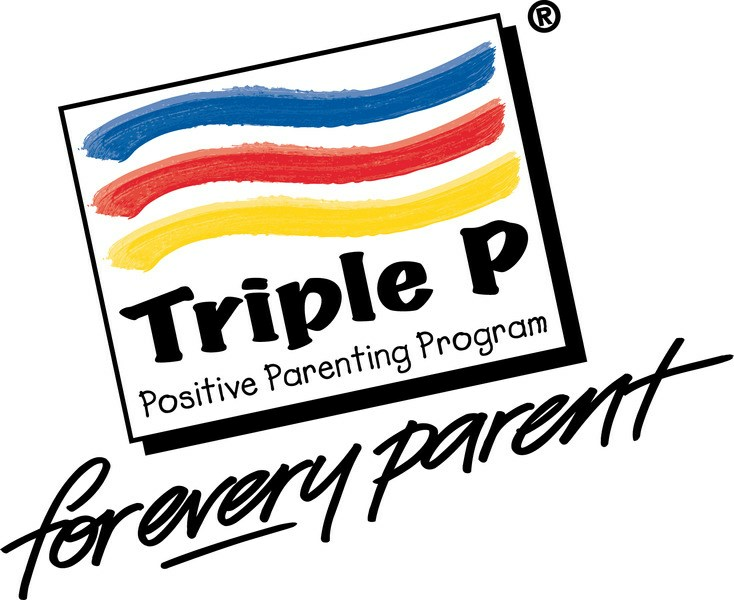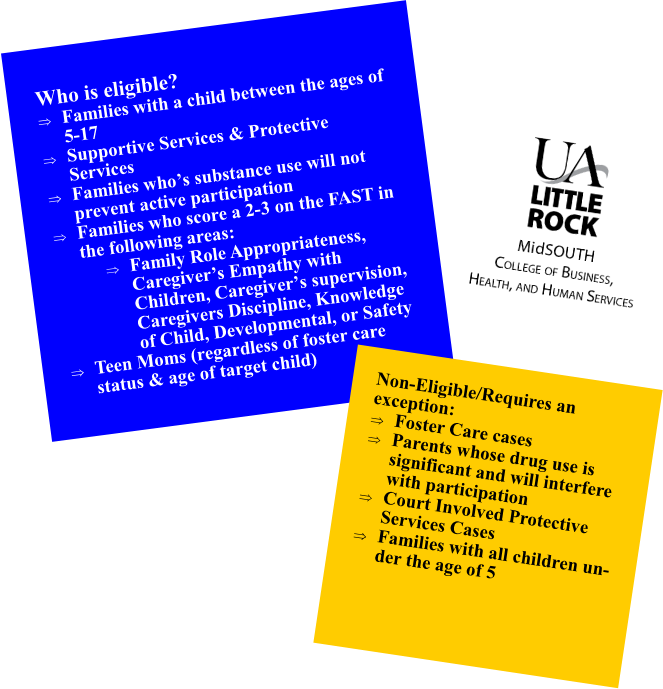Triple P Overview:

This 10-session evidence-based parenting program includes sessions on causes of children’s
behavior problems, strategies for encouraging children’s healthy development, and strategies for managing
misbehavior. Active skills training methods include modeling, rehearsal, feedback and homework tasks, Segments from Every Parent’s
Survival Guide DVD may be used to demonstrate positive parenting skills.
Several generalization-enhancement strategies are incorporated (e.g., training with sufficient examples until parents can
generalize skills to an untrained situation, and training with varied target behaviors and children) to promote
the transfer of parenting skills across settings, siblings, and time.
Practice sessions are conducted in-home during which parents self-select goals to practice, are observed interacting
with their child and implementing parenting skills, and subsequently review their interaction and receive feedback
from the practitioner. Further sessions then cover how to identify high-risk parenting
situations and develop planned activities routines. Finally, maintenance and relapse issues are
covered.
Sessions last approximately 1 hour each.
The Triple P system focuses on five core principles of positive parenting:
- Ensuring a safe, supervised, and engaging environment
- Using consistent, predictable, and assertive discipline to help children learn to accept responsibility for their behavior and become aware of the needs of others
- Creating a positive learning environment that helps children learn to solve problems
- Having realistic expectations, assumptions, and beliefs about children’s behavior
- Taking care of oneself as a parent so that it is easier to be patient, consistent, and available to children
- Increased positive parenting
- Reduced abusive parenting
- Lower social, emotional, and behavior problems
- Improved parent-child relations.
- Decreased parent stress

- Request for Services/Encumbrance Form & Triple P referral from are completed by the FSW
- Approval is obtained from both Unit and County Supervisors
- Request for Services form is submitted to the Financial Coordinator for processing
- The Financial Coordinator encumbers the service and forwards it to: triplep@midsouth.ualr.edu
